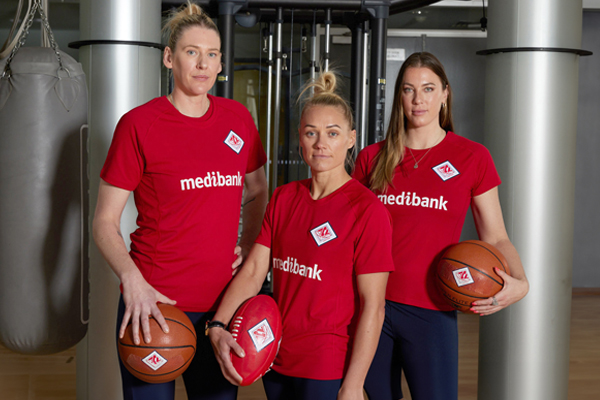-
We’ve all heard about the benefits of regular exercise: stronger bones and muscles, an increase in energy, and the ability to better cope with stress and anxiety. But did you know that exercise can also be one of your greatest assets when it comes to managing a range of chronic diseases?
Heart conditions
It’s natural to worry that over exerting yourself might aggravate a newly diagnosed heart condition. However, exercise has so many benefits for your health. Activities that get you moving without putting too much pressure on the heart, like walking, are generally safe for most people. It’s all about building up slowly to the recommended amount of exercise each week for your age. Make sure you speak with your GP or health professional about a safe exercise program for you before starting.
Asthma
According to the National Asthma Council Australia, you shouldn’t let asthma get in the way of being physically active. In fact, some of our most successful national sports stars manage this condition.
People with asthma can take their pick when it comes to exercise and team sports, as long as they’re aware of their environment. Certain conditions like dry or cold air, high-pollen or high-dust days are best avoided. A proper warm-up and cool-down are essential and just to be safe, develop an asthma action plan with your GP in case symptoms do flare up.
How can exercise help manage chronic illness?

-
Cancer
Cancer Australia recommends that people with cancer take part in regular physical activity where possible before and after their treatment, by starting small with a gentle form of exercise such as walking or tai chi, and then gradually build up from there. Regular exercise may be particularly beneficial for those experiencing fatigue during their treatment or recovery, and could improve their mental wellbeing, physical function and quality of life during this challenging time.
Before starting an exercise program, it’s important that people with cancer chat to their health professional about any precautions they may need to take.
Diabetes
Exercise has very specific benefits for people with diabetes. It can help insulin to work more effectively and this improves your ability to manage the disease. It can also help you maintain a healthy weight, reduce your risk of heart disease and lower your blood pressure.
Diabetes Australia does advise that you should avoid exercise any time you’re feeling unwell, or have ketones present in your blood or urine.
Arthritis
For other chronic conditions like arthritis, when and what type of exercise could benefit you is highly dependent on the type of arthritis you have. You can find out more at Arthritis Australia’s website, arthritisaustralia.com.au
Training with a professional
It’s common for your confidence to take a big hit after a disease diagnosis. If you think you’d benefit from some guidance to get you going, try an exercise and rehabilitation centre, or a few sessions with a qualified fitness instructor who has specific training in disease management.
Personal trainer Bella from Goodlife Health Clubs has these words of encouragement: “My clients who do and do not have a chronic disease are not treated differently. It’s just a different approach in terms of the training style. Everyone should have a personalised touch with their training and wellbeing.”

Medibank Type 2 Diabetes Program
This 12-month program includes consultations with a dietitian and a supported meal plan that aims to help eligible members achieve a healthy weight and manage their type 2 diabetes. Clinical and product eligibility criteria apply.
-
How to walk 10,000 steps
Discover how to easily reach your goal of 10,000 steps daily.
-
Everything you need to know about parkrun
Been wondering what a parkrun looks like? Where do you go? What do you do? How do you sign up? Find out here.
-
Five ways to exercise when on a budget
You don’t need to spend money on gym memberships just to meet your fitness goals. Here are five free ways to stay healthy and active when you’re living on a budget.
-
How parkrun changed my life
Christie Farrow went from being an exercise-phobe to a true blue runner with parkrun.
-
Australia's top female athletes unite on ACL injury
Some of Australia's most talented athletes have joined forces to highlight the unique injury challenges women face.
-
How to create your perfect summer fitness plan
Be inspired by the sunshine and get moving
Subscribe to receive the best from Live Better every week. Healthy recipes, exercise tips and activities, offers and promotions – everything to help you eat, move and feel better.
By clicking sign up I understand and agree to Medibank's privacy policy





